What Are Doomscrolling and Joyscrolling? Are You Doing Either?
There are new data in the last couple of years that suggest doomscrolling — reading story after story about negative news online — has increased. Very Well Health suggests that since the Covid-19 pandemic, the number of people who get their news from digital sources increased by 35% and from social media by 47%.
But as you use these sites more and more, you may notice yourself checking news feeds multiple times a day. You may feel an anxious fear of missing out on an important news story to the point that you’re pushing aside other responsibilities. You may be scrolling through your feeds like a zombie, mindlessly scanning over multiple posts a minute without feeling satisfied or happy with the content that you see.
If some of these signs sound familiar, and you feel like you can’t get away from your social media newsfeeds, you’re likely doomscrolling.
Am I Doomscrolling?
According to Psychcentral, doomscrolling is defined as the habit of endlessly scrolling through news feeds and stories online despite the negative emotions that it’s causing. Mindlessly scrolling is compulsive and habitual, rather than a once-in-a-while occurrence.
Wanting to know more about a particularly distressing news event isn’t a bad thing on its own. Unhealthy behavior is when you regularly seek disturbing and frightening news stories, like when you scroll through hundreds of stories and feel apathy toward the negatives and positives.
This sort of aimless “zombie scrolling” is particularly dangerous for those with mental health conditions like depression, anxiety, and OCD. Those with histories of mental health issues may be more susceptible to the endless news scroll.
Here are additional signs you may be doomscrolling or addicted to the news:
- Do you intend to spend a few minutes reading news, but find hours have passed reading distressing news stories?
- Do you compulsively read the same news feeds for new information about tragic events (especially that have no direct impact on you)?
- Are you fixated on particularly negative news articles?
- Do you often feel on edge or sad throughout the day after reading the news?
- Have you been unable to sleep due to high anxiety levels and thoughts of what you’ve read consuming your thoughts?
Why is Doomscrolling Bad?
Psychotherapist Tess Brigham suggests in another Very Well Mind interview that doomscrolling is related to our hardwired survival instinct to seek and identify potential threats in the world. The 2019-21 pandemic, in particular, exacerbated this propensity because of how present and real the danger of getting sick was. Every day there was a new update on the vaccine status and where outbreaks were happening.
A 2020 survey found that people who excessively consumed media for multiple hours every day had increased levels of anxiety. This excessive and compulsive consumption increases anxiety and can disrupt your daily schedule as it gets in the way of working and sleeping. Doomscrolling on the phone in bed is a particularly dangerous pitfall that many have fallen into. The bed, after all, is supposed to be a place associated with sleep, not compulsively scrolling through the news.
Psych Central quotes Shannon Garcia, a registered clinical social worker, suggests that reading news articles when distressing things happen is a form of reassurance-seeking to actually reduce anxiety levels. However, the opposite often happens as more scary and disturbing information is found.
How Do You Stop Doomscrolling?
Set timers
Setting boundaries on social media is a good first step to moderate the amount of negative information you’re exposed to. You can set a 10-15 minute timer for how long you scroll through news, or mentally set boundaries for the times of day to check your feeds.
Self-limit time on social media
Staying aware of why you’re picking up your phone and checking social media is also a good idea, as you may habitually and compulsively check your feed rather than actively seek out useful news. Practicing awareness about your habits can prevent addictions, like addiction to the news or scrolling, from forming.
Be purposeful about doing something else
Finding new activities independent of smartphones and other devices is also a good idea to keep your mind engaged. Consider picking up a new book series, a healthy idle habit, or calling/chatting with a friend instead.
Was it worth it?
You may also want to be aware of the types of news sites that you’re using, as some may be more sensational and fearmongering than others. Do a mental check-up where you reflect on the emotions and feelings that you get after scrolling through certain sites. Are you really getting what you want out of the site? Is it making you more informed, or just scared?
Get help
We aren’t qualified to give advice on mental health or medical issues. If you are concerned about your doomscrolling habits or someone else’s there are resources to help. Remember that you’re not in this alone. Consider reaching out to friends or family if you’re feeling distressed. There’s no shame in reaching out to a psychologist or therapist for more help in identifying and preventing unhealthy habits.
Some good nationwide places to start:
- National Alliance on Mental Illness
- Active Minds
- Addiction Center: Resources for Technology Addiction (nationwide)
- SAHMHSA National Helpline
Joyscrolling: Positive Social Media
Social media, at its core, is intended to make you feel more connected to your social group regardless of distance or time. It’s related to the natural human desire for connectivity and closeness to friends and family. It is supposed to be a positive activity, not a negative!
As an opposite to doomscrolling, online groups have started using the term joyscrolling to refer to enjoying the experience of browsing news and social feeds. Joyscrolling is about the positive use of social media in a measured way so that you genuinely enjoy your time with it.
To do this, you have a couple of options.
‘Positive’ social media apps
Known mostly for art, recipes, and generating creative ideas, Pinterest is a medium-sized social media site that isn’t usually grouped with the other big names. Pinterest is mostly artists and creatives posting their work and searching for more inspiration. Pinterest doesn’t have a lot of person-to-person interaction, as it’s more about ideas and images, but it’s an example of a site that forces you to take a step back from deeply involved social media.
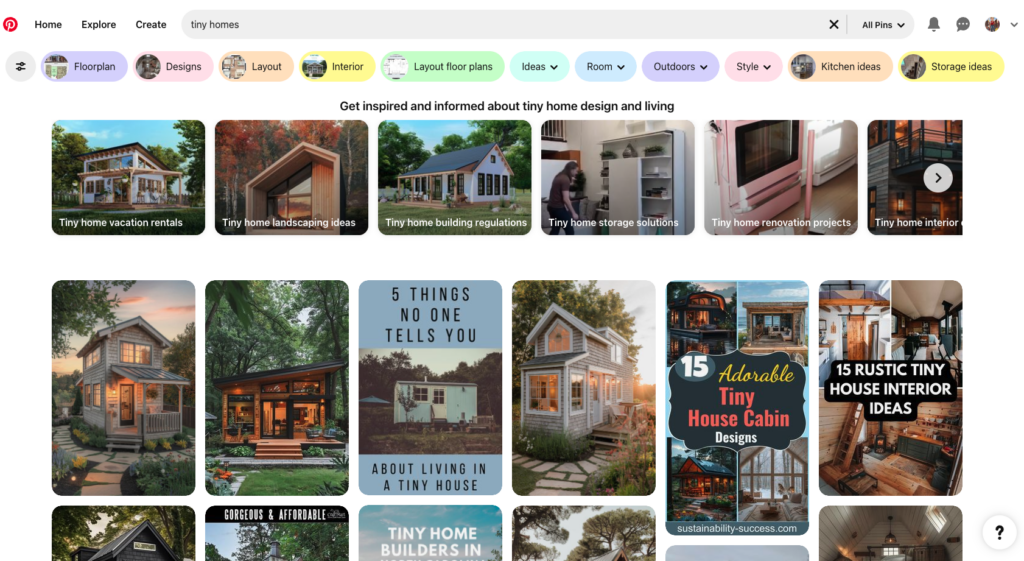
Bereal
Intended to be reminiscent of an older style of Instagram, this project was built to directly connect you with your friends and without an algorithm heavily dictating what content pops up in your feed. Similar to Snapchat, Bereal keeps your social media use focused on you and your connections’ lives.
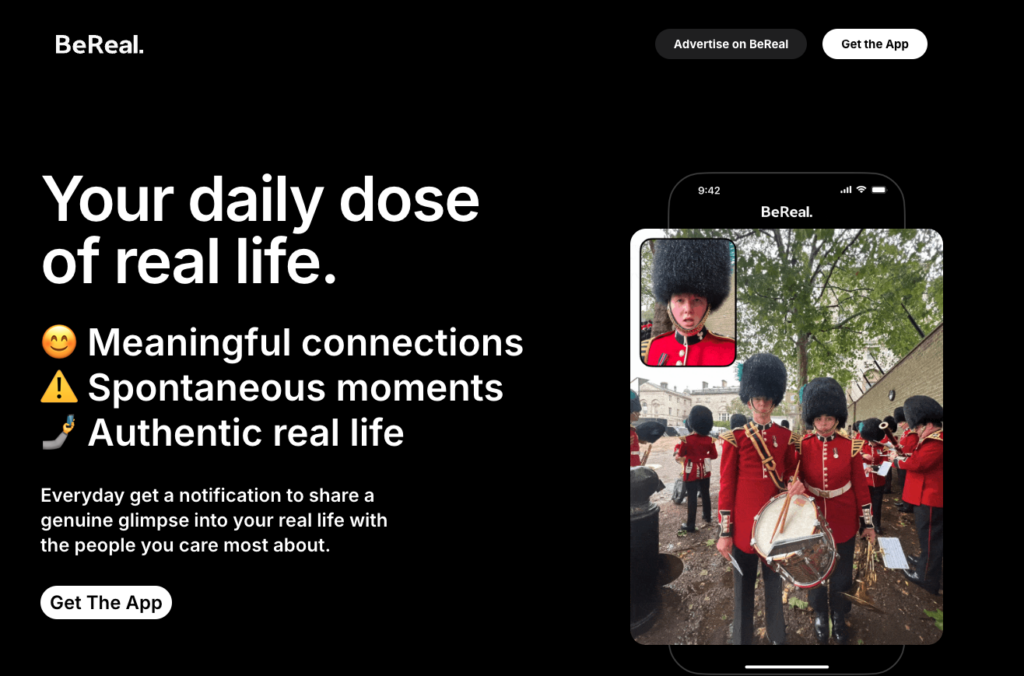
Threads
Although Threads is created by Instagram, it’s intended to be a response to Twitter’s recent changes. Threads is mostly text-based, so it focuses on conversations rather than sharing photos or videos. Although not a strictly non-toxic experience, Threads is a possible alternative for those who are feeling trapped by Twitter. Its algorithm tends to deliver content based on your likes, comments and interactions, so the more joy you love, the more you’ll tend to get.
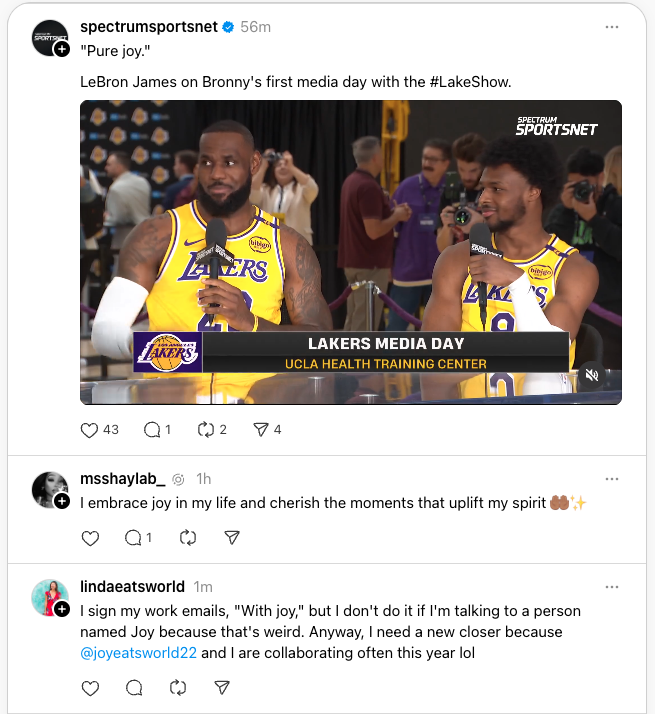
Curate your social media
Most social media algorithms operate with what is called a positive feedback loop. This means that if you tend to watch a type of content a lot or post/respond to certain types of posts, the algorithm will give you more of that content to keep you engaged with the app.
In other words, if you push the algorithm, it will keep going in that direction unless you stop it.
Any media with an algorithm that’s fair and unbiased will only give you positive content if you only seek and engage with positive content. Therefore, if you make a positive change and genuine effort to pursue more positive information, the apps you use may “clean themselves” up.
Consider unfollowing accounts and communities on apps that make you feel negative, even if you enjoy them. The more focused your social media is on your friends and your hobbies, the less dread that you’ll get from browsing and scrolling. Facebook has made this even easier by allowing you to take breaks from your contacts, block them without unfriending them, or blocking them entirely.
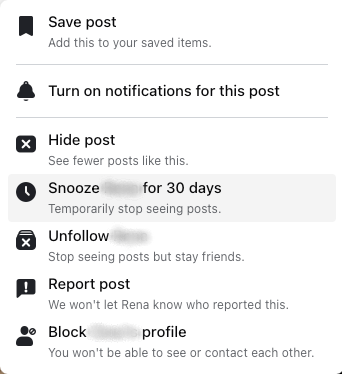
Practicing mindfulness about your habits is an excellent way to turn doomscrolling into joyscrolling.





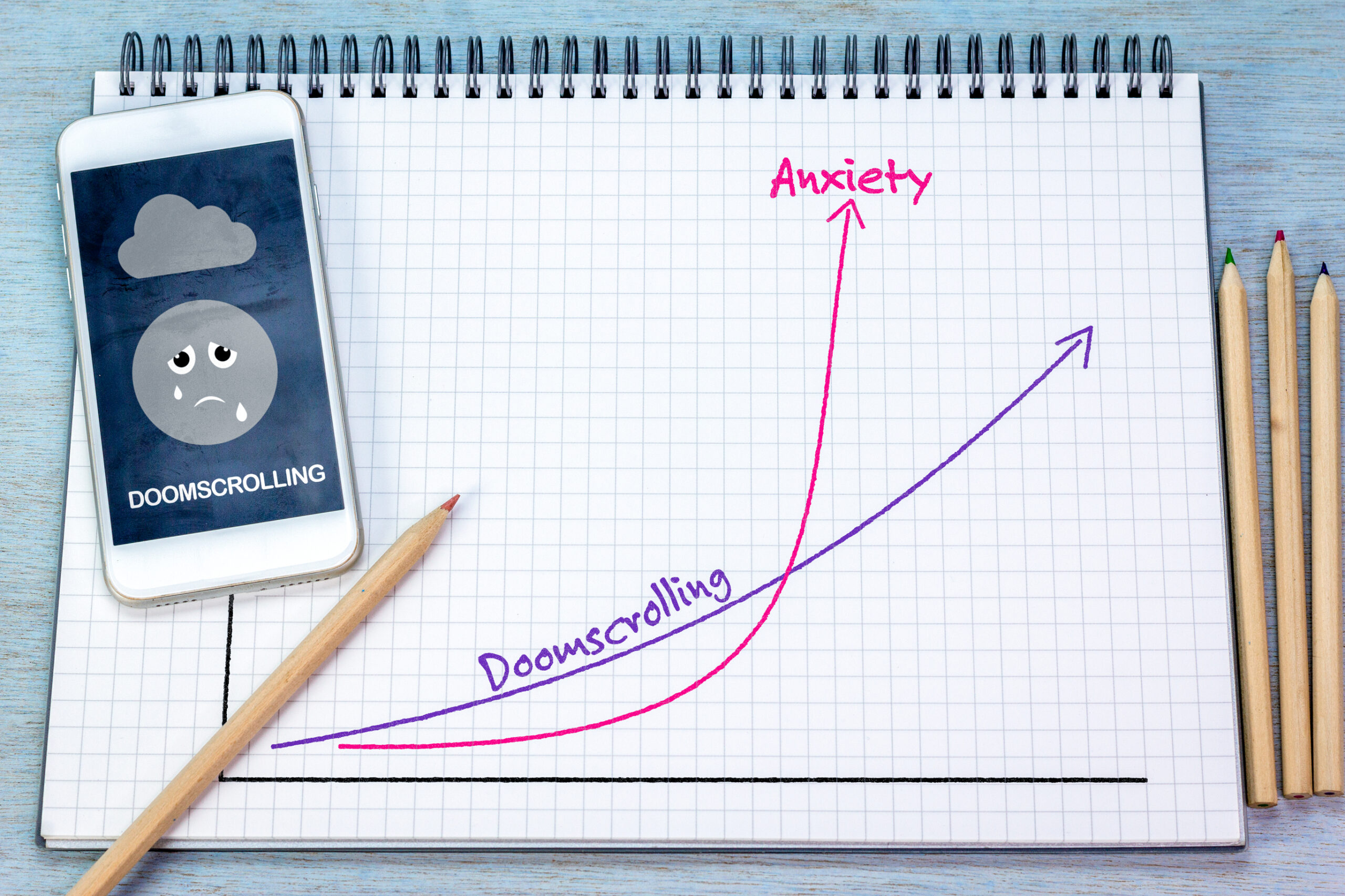




 Share On Twitter
Share On Twitter